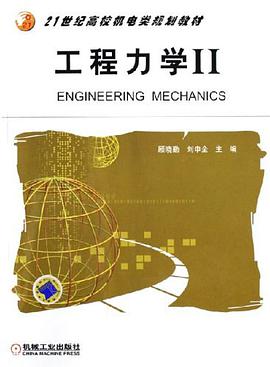

具体描述
* What is postmodernism? * How can it be used to develop social research? * How can we do social research in more creative ways? This book integrates philosophical and theoretical ideas with fieldwork and supports the development of research methods with a sharper interpretive and self-critical edge. It provides an overview of postmodern themes, evaluates the possibilities and dangers of postmodernist thinking and develops ideas on how a selective, sceptical incorporation of postmodernism can make social research more conscious about problems and pitfalls, and more creative in working with empirical material (so called 'data'). A reflexive orientation runs throughout the book, which addresses themes such as how to understand the individual in research, how to deal with the knowledge/power connection, how to relate to language and how to unpack rather than take for granted socially dominant categories in research work. One chapter addresses the research interview in the light of postmodernist concerns about the naivity of assuming that the interviewee is simply an informant, a truth-teller authentically expressing his or her experiences and meaning. Other chapters address issues of voice, interpretation, writing and reflexivity. The book includes a range of empirical illustrations of how postmodernist ideas can inspire social research, and in all it represents an essential text for students and researchers alike.
作者简介
目录信息
读后感
评分
评分
评分
评分
用户评价
我发现这本书在结构安排上独具匠心,它不像传统的教科书那样循规蹈矩地划分章节,反而更像是一种意识流的推进,让各个理论支点在不经意间相互连接、相互映照。这种处理方式,初看之下可能让人感觉松散,但深入阅读后,会发现作者一直在编织一张宏大的网,将看似不相关的社会现象与哲学思辨紧密地联系起来。特别是当它探讨到差异性和他性在研究中的地位时,那种对边缘声音的关注和对中心叙事的解构,展现出一种强大的伦理关怀。这本书的厉害之处在于,它能将晦涩的后结构主义思辨,巧妙地嵌入到对日常社会实践的观察中,使得理论不再是空中楼阁,而是成为了分析现实的有力工具。我感觉作者在努力提醒我们,每一次“发现”都伴随着一种“遮蔽”,而真正的智慧在于意识到我们所看到的,远非全部。对于渴望超越实证主义藩篱的学者而言,这本书提供了一个极具张力的理论入口。
评分这本书的封面设计散发着一种引人深思的氛围,那种介于模糊与清晰之间的视觉语言,恰恰预示了内容本身的复杂性。我最初翻开这本书时,主要被其对传统研究范式的解构所吸引。作者似乎对那种线性、客观、追求普适真理的旧有框架抱有一种深刻的怀疑和挑战欲。阅读过程中,我能明显感受到一股强劲的批判思潮在涌动,它不是那种简单的否定,而是一种精妙的重塑——将焦点从“我们发现了什么”转向“我们是如何知道的”。那种对“文本性”和“诠释学循环”的反复探讨,迫使我重新审视我过去习以为常的研究方法论,特别是关于权力关系如何渗透到数据收集与分析过程中的论述,非常尖锐且发人深省。整本书读下来,感觉像是在攀登一座知识的迷宫,每一步都充满了对既定观念的反思,虽然过程略显晦涩,但其最终提供的视角转换,对于任何严肃的社会科学研究者来说,都是一次不可多得的思想洗礼。它挑战了我们对“真实”的定义,使人不得不停下来思考,我们所构建的社会图景,究竟有多少是源于现实本身,又有多少是我们预设框架的产物。
评分这本书的阅读体验,坦率地说,像是在经历一场思维上的高强度间歇训练。它没有提供那些一蹴而就的“快速解决方案”或“操作手册”,而是像一个老练的哲学导师,不断地抛出那些令人坐立不安的问题。尤其是在处理主体性与客体性之间关系的部分,作者的论述极其细腻,几乎是将社会研究的每一个环节都置于显微镜下进行拷问。我尤其欣赏它对“元理论”层面讨论的深入,这种深入使得读者必须暂时放下具体的实证案例,转而关注理论本身的构建基础是否牢固。书中对语言的媒介作用的强调,让我对自己的写作习惯产生了强烈的自我怀疑——我们用词的精度是否真的能承载我们声称要描述的复杂性?部分章节的密度非常高,需要反复阅读才能捕捉到其中微妙的转折和细微的差别,这要求读者必须保持高度的专注力,否则很容易在复杂的术语和概念的堆砌中迷失方向。但正是这种挑战性,使得最终的领悟更具价值,它教导的不是如何做研究,而是如何成为一个更具批判意识的研究者。
评分读完此书,我最大的感受是“去中心化”的彻底性。作者似乎对任何形式的权威和终极解释都持有一种近乎本能的排斥。这种排斥并非盲目的破坏欲,而是源于对知识生产过程中权力固化的深刻洞察。书中对“意义的漂移”和“解释的无限性”的探讨,几乎宣告了任何试图一锤定音的社会科学断言的徒劳。对我个人而言,影响最大的是它关于“真实性”的讨论,它迫使我反思,我们所依赖的统计数据、访谈文本,它们本身就是构建出来的“场景”,而非原始素材。这种对中介层次的不断挖掘,让这本书的理论深度远超一般的方法论著作。它的语言风格时而冷静克制,时而又充满激昂的辩论色彩,仿佛在邀请读者加入一场永不休止的智力交锋。它不是那种读完可以舒服地合上的书,它会持续地在你的脑海中发酵,让你对自己的学术立场产生永恒的警惕。
评分这本书对社会研究领域中“客观性”这一神圣光环的剥离过程,处理得极其精妙和到位。它没有停留在批判的层面,而是致力于提供一种在承认局限性基础上的“负责任的实践”。我注意到,作者在阐述复杂的概念时,常常采用对比和反讽的手法,这种略带戏谑的笔调,反而冲淡了理论的僵硬感,使得复杂的后现代议题变得更具可接近性,尽管其内核依旧扎实。我特别喜欢它对“叙事”作为研究核心的重塑,强调了故事的建构性及其在社会认知中的决定性作用。它成功地将哲学思辨与对当代社会现象的敏感观察结合起来,使得读者不仅在理论上得到拓展,在对现实的理解上也变得更加细致入微。这本书更像是一面棱镜,它打散了原本单调的光束,折射出社会现实中丰富多彩、多维度的光谱,让人在迷失于多元解释的同时,也发现了新的研究可能。
评分 评分 评分 评分 评分相关图书
本站所有内容均为互联网搜索引擎提供的公开搜索信息,本站不存储任何数据与内容,任何内容与数据均与本站无关,如有需要请联系相关搜索引擎包括但不限于百度,google,bing,sogou 等
© 2026 book.wenda123.org All Rights Reserved. 图书目录大全 版权所有




















